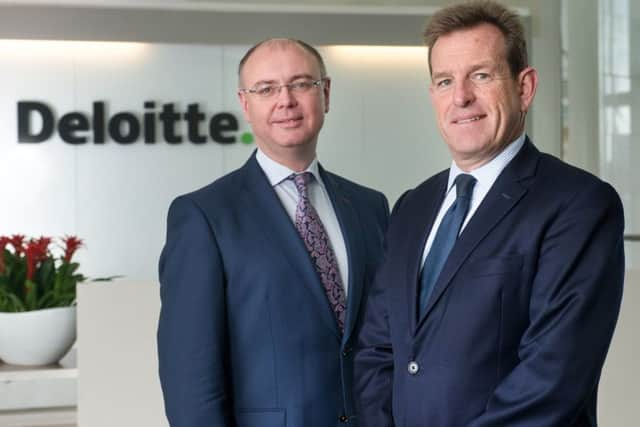EXCLUSIVE: Brexit and Trump '˜could herald new era of capitalism' - Deloitte boss


Nick Owen told The Yorkshire Post that the two surprise political results of the past six months were clear signifiers of disquiet amongst large sections of society, both in Britain and the United States, who feel left behind.
The professional services boss also said that there was a strong chance that once Britain had left the European Union the regions could benefit from a new industrial policy which has greater emphasis on involving the regions, something that Yorkshire could capitalise on owing to its strong educational establishments.
Advertisement
Hide AdAdvertisement
Hide AdMr Owen said: “I think when you look at the Brexit result and the US election result, a good chunk of the reason for both is that vast amounts of both populations are feeling they had not benefited from the economic success of the past five to 10 years. The one thing we should be learning from both those results is that there are very clear divides in society that are more clearly defined than they have been previously.”


Mr Owen said that he felt that despite the uncertainty the ensuing year would bring to businesses, he anticipated companies would embrace what he called “more responsible forms of capitalism” and that scandals such as those seen with the collapse of BHS and the treatment of staff at Sports Direct were increasingly becoming anomalies.
He said: “My experience interacting with lots of businesses over the last two years is that businesses are doing quite a lot in defining their purpose more clearly, encouraging their people to get involved in community activities and what we call CSR beyond the token stuff.
“Many people will perhaps, post-Brexit, realise there is something here about more responsible forms of capitalism. We see from a professional services point of view we are trying to help that and I think there has been a big moodswing these two election results will cause us to focus on. It only takes a few things to go wrong and people disagree with that, stuff like BHS and Sports Direct and it all goes wrong. But interestingly I haven’t seen those people who keep Sports Direct, taking their custom somewhere else. You have to engage the consumer in that debate, but that’s not to excuse it all.
Advertisement
Hide AdAdvertisement
Hide Ad“I think there is something about corporate welfare that is about a broader range of purpose than just its core shareholders so that everyone is clear about what the business is there to do.


“In a firm like ours, the average age is around 30. In a few years time we will be a completely millennial generation. We know what their attitudes are, they want to work for a business that has a purpose and that the business they are associated with wants to do important and meaningful work, meaning to a broader community, not just shareholders. I think lots of businesses will move the same way.”
He added that he expected the regions of the UK outside of London to be “more important in the future rather than less important”.
“I am optimistic in the regions. I am a big fan of Northern Powerhouse and momentum was picking up around it.
Advertisement
Hide AdAdvertisement
Hide Ad“I do think you will see a real determined focus on trying to put an industrial policy put in place which encourages a more even geographical spread of investment and the incentivisation of entrepreneurialism and locations of businesses.
“The South East has had more than its fair share in the past and there will probably be a real effort to identify parts of the country with relevant advantages, whether that is skills or natural resources to place hubs of activity. There will more direction rather than a complete free for all. Particularly looking to access local employee base it will favour this region. It has great advantages from an educational perspective in terms of quality of people. Things are only going to get harder in the south east as people stop migrating in.”